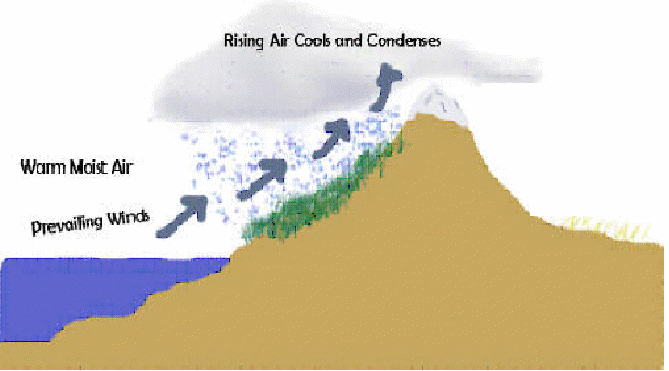Humidity Requirements
Relative humidity is often an important factor in industry. During the manufacture of cotton cloth, the cotton fibres must not be allowed to become too dry, or they willbecome brittle and easily accumulate static electricity, which causes its own problems. During the industrial revolution in Great Britain, the British cotton spinning industry grew up in Lancashire, west of the Pennines. The Pennines are a mountain range, which would forcemoisture laden air blown from the Atlantic by the prevailing westerly winds to rise to altitudes where the atmospheric pressure is less and the temperature is colder. The air expands and does work. The enrgy needed to do this work is provided by the internal energy of the air and the air cools. The air is less able to retain the moisture it contains and rain often results.

In contrast, a dry atmosphere is often required for the making and processing of food, for the manufacture of many electronic components and the seasoning of wood. Special equipment is used to dry the air, which is then recirculated thoughout the building.
Air conditioning is a very common way to control humidity, widely used in offices and public buildings. Air is drawn from outside and passed through sprays of water to remove dust. It is then heated and humidified before being filtered to the rooms of the building.